An Introduction to Dedicated Servers: Essential Information
Introduction
A dedicated server is a physical processor hosted in a data center and linked to the Internet. The physical server is allocated completely to a user, an organization, or a reques,t giving them full control over the server’s resources and configuration.
On one hand, having a dedicated server guarantees that you have exclusive access to the server’s CPU, RAM, and bandwidth, as well as the freedom to install any software you select. On the other hand, you are also liable for configuring everything connected to backups, security, and software updates. You can be quite flexible through this degree of freedom, but it also implies that you must be careful while configuring your dedicated server.
What are dedicated servers?
A physical server that is exclusively used by one client is recognized as a dedicated server. A user can use all of the server’s resources when using a dedicated server. With shared hosting, on the other hand, many users share a server’s resources.
Greater processing power, storage capacity, and performance are provided by dedicated servers. Additionally, they support unique software and hardware setups. They are, therefore, perfect for data-intensive operations, sophisticated programs, and websites with a lot of traffic.
How do dedicated servers differ from shared and VPS hosting?
Performance, control, and resource allocation are key differences between dedicated servers, shared hosting, and VPS hosting.
A dedicated server gives one user exclusive usage of the entire physical server. Although this configuration is more expensive, it guarantees optimal performance, security, and customization. Large companies, websites with a lot of traffic, and applications needing a lot of resources are all perfect for it.
On the other hand, shared hosting allows numerous websites to share server resources, such as CPU, RAM, and storage. This makes it the most economical choice, but because of resource sharing, performance and security are limited. Small websites or novices who don’t need a lot of customization can use it.
A middle-ground solution is provided by a VPS. By dividing a physical server into several virtual servers, it allocates specific resource portions to each user. In contrast to shared hosting, virtualization guarantees improved performance, scalability, and control even while users share the same hardware.
Performance & Security: Because no resources are shared, dedicated servers provide the best performance and security, whereas shared hosting offers the worst because several users share a single server. Both are balanced by VPS.
Cost and Customization: Although shared hosting is less costly and offers less control, dedicated servers offer complete customization but come at a higher price. VPS is less expensive than dedicated hosting and offers a considerable amount of customization.
Key benefits of using a dedicated server
Here are some key benefits of using a dedicated server:
Flexibility in Customization: Taking full administrative access enables you to install specific programs, change configurations, and enhance your server atmosphere.
Improved Uptime and Stability: Dedicated servers provide greater uptime and stability since they protect your website from the performance glitches of new websites hosted on a shared server.
Scalability: As your needs change, you may quickly inform the hardware or software on your server without affecting other users on a shared platform.
Enriched Security: By managing your own firewall rules and putting in place more severe security measures, a dedicated server reduces the option of security breaches from other websites hosted on a shared server.
Understanding server specifications: CPU, RAM, and storage
A server’s ability to process data and manage workloads is largely dependent on its CPU, RAM, and storage. In other words, the CPU does calculations, RAM serves as temporary working memory for running data, and storage keeps the data on the server permanently. These three components are important to take into account when analyzing server specifications.
Security and performance: Why dedicated servers excel
Dedicated servers are greater to shared hosting environments in terms of security and performance as they provide exclusive access to a single server’s resources, which means that no other users can tamper with your data or processing power. This results in a much higher level of control and solidity.
Important reasons why dedicated servers provide better security and performance:
Isolation: Since you are the only user on the server, your data is totally distinct from other users’ data, reducing the possibility of harmful behavior or unauthorized access spreading from other websites.
Customizable security measures: You are in complete control of putting in place dependable security setups, such as powerful firewalls, frequent security upgrades, and sophisticated intrusion detection systems that are suited to your necessities.
Managed vs. Unmanaged dedicated servers: Which one to choose?
Depending on your business goals, budget, and level of procedural ability, you can choose between managed and unmanaged hosting when choosing a dedicated server.
The hosting business offers whole assistance for a managed dedicated server, which includes monitoring, troubleshooting, security upgrades, upkeep, and server setup. Businesses without in-house IT knowledge or those who would rather distillate on operations than server administration would find this alternative appropriate. Although managed servers are more expensive, they guarantee dependability, security, and peak performance.
However, an unmanaged dedicated server gives you total control over security settings, program installations, and server configurations. IT specialists and seasoned developers who need flexibility and customization must consider this option. Updates, security fixes, and troubleshooting, however, call for technical expertise. In general, unmanaged servers are less expensive than managed ones; nonetheless, the user bears full responsibility for server maintenance.
A managed server is the superior option of security, and ease of use a top concern. If complete control and cost reductions are more important to you, an unmanaged server is the best option. In the end, the choice is based on your technical prowess, available resources, and available server management time.
Choosing the Right Dedicated Server for Business Needs
Making the correct dedicated server choice is vital to guaranteeing your company’s scalability, security, and excellent performance. You can get a solution that is customized to meet your unique requirements with HostnetIndia. The following are important things to think about when choosing:
1. Performance specifications
– Based on your website traffic and applications, compute how much CPU, RAM, and storage you’ll require.
– Select from HDD (high capacity, low cost) and SSD (faster, higher performance) storage solutions.
– To manage data transfers effectively, take into account network speed and bandwidth.
2. Servers Under Management vs. Unmanaged
– Server maintenance, security upgrades, and technical support are handled by HostnetIndia.
– You have complete control over unmanaged servers, but upkeep requires technical know-how.
3. Features for Security
– Seek out firewalls, DDoS defense, and frequent security updates.
– To avoid data loss, make sure there are backup options available.
– For safe transactions, choose SSL certificates and encryption.
4. Scalability and customization
– Choose a server that allows hardware upgrades as your business grows.
– Customizable server configurations help meet specific business needs.
5. Reliability & Uptime Guarantee
– HostnetIndia delivers a high uptime guarantee, ensuring your website remains accessible.
– Look for redundant power supplies and data centers for uninterrupted service.
6. Budget & Pricing
– Liken pricing based on features, resources, and support level.
– Deliberate the long-term cost-effectiveness of managed vs. unmanaged servers.
By evaluating these influences, you can select the right HostnetIndia dedicated server that aligns with your business aims, ensuring unified performance, security, and growth.
Future trends of dedicated server technology
Technology for dedicated servers is emerging rapidly appreciating developments in cloud integration, security, and hardware. The use of AI-powered automation is one of the greatest important trends; it increases server management by detecting mistakes, allocating resources optimally, and strengthening security protocols. These assurances improved performance and decreased downtime.
The move to servers that are eco-friendly and energy-efficient is an additional important trend. By using liquid cooling systems, energy-efficient computers, and renewable energy sources, data centers are concentrating on lowering their carbon effect. This decreases operating expenses and supports global sustainability goals. The development of dedicated servers is also being influenced by edge computing. Businesses are placing servers near end customers to increase real-time processing and lower latency. For sectors where low potential is vital, such as gaming, healthcare, and the Internet of Things, this is especially beneficial.
Hybrid server models, which combine cloud environments through dedicated servers, are also becoming more and more common. By the dependability and efficiency of specialized hardware, this method syndicates the flexibility of cloud computing.
Improved security measures, such as zero-trust architectures and AI-driven threat detection, are becoming ordinary to stave alongside online attacks. Dedicated servers are becoming more effective, safe, and flexible to meet changing company necessities, thanks to these advancements.


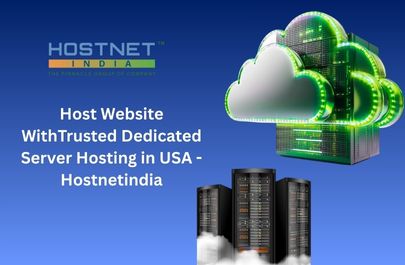 Host Website With Trusted Dedicated Server Hosting in USA – Hostnetindia
Host Website With Trusted Dedicated Server Hosting in USA – Hostnetindia 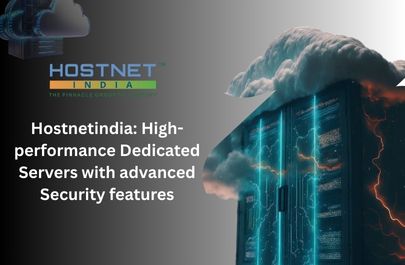 Hostnetindia: High-performance Dedicated Servers with Advanced Security Features
Hostnetindia: High-performance Dedicated Servers with Advanced Security Features  How Do German Dedicated Servers Guarantee Maximum Data Security?
How Do German Dedicated Servers Guarantee Maximum Data Security? 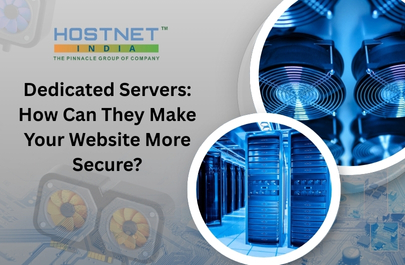 Dedicated Servers: How Can They Make Your Website More Secure?
Dedicated Servers: How Can They Make Your Website More Secure? 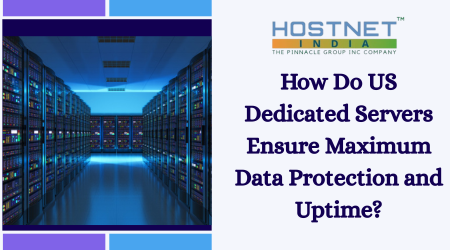 How Do US Dedicated Servers Ensure Maximum Data Protection and Uptime?
How Do US Dedicated Servers Ensure Maximum Data Protection and Uptime? 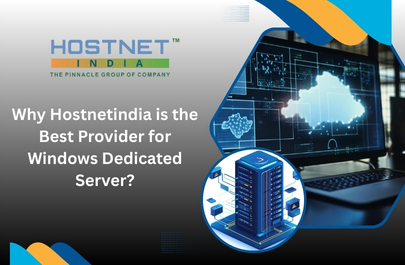 Why Hostnetindia is the Best Provider for Windows Dedicated Server?
Why Hostnetindia is the Best Provider for Windows Dedicated Server?